The Slow Starter : Breaking Bread
Critical Design
Branding

The Slow Starter by Breaking Bread
“Activities that engage our better sides: our creativity, ingenuity and sociability, and are re-creative even as they require investment of self. When magnified in scale, they are also the basis of all communal celebration…
Not all conveniences are healthy, and certain focal practices, ostensibly
burdensome, should not be blithely abandoned without reflection” — John O’Brien
Consumers of today expect to have their needs met at their convenience. But what does convenienc really mean? To the modern consumer, convenience means whatever suits you best. It means being able to choose what you want, when and where you want it . In this culture of convenience, essentiall any convenience is available at a cost.
So what is the true cost of convenience, and what is lost in pursuit of it?
These modern conveniences are designed to make our lives better. But often, these conveniences make our lives busier and lonelier as we work longer hours to afford the premiums of convenience, only perpetuating the need for more convenience, and thus more work. In this constant pursuit of a future “better”, we have lost the desire and ability to become emotionally invested in focal practices. While convenience affords us the luxury of ‘free-time’, are we ignoring the social and environmental implications of our demands?
In a world where the culture of convenience is hypernormalized, has investing time and care in mindful focal practices become a useless act? Or is there value in engaging in inconvenient tasks?
This is a critical design project that is focused around the concept of convenience and how the culture that surrounds convenience continues to impact society. From changing how we socially interact, create, and maintain communities, to the environmental impact of having everything on-demand, convenience has become a precondition of modern Western culture. The souvenir, the Slow Starter, is a dried sourdough starter which is intended to be kept, maintained, and passed-down in an heirloom-like manner.
It encapsulates the emotional investment of time, care, and community that we have lost through the demand for convenience. The envelope-like tag helps users identify the type of sourdough starter that the jar contains, while the name + date card inside helps keep track of the history of the starter, with room for anecdotes on the back of each insert.
By shifting the focus from convenience towards the focal practice of cooking, people are presented with the opportunity to engage in a rewarding, mindful, social practice. Through the “Slow Starter” and the creative-learning process of cooking, people are able to connect with communities, cultures, histories, stories, and the act of creating new stories while appreciating both the process and the final ‘product’.
In collaboration with Aaron Baart, Alyssa Martin, Kelsey McDonald & Nicolas Cyr-Morton
![]()
![]()
So what is the true cost of convenience, and what is lost in pursuit of it?
These modern conveniences are designed to make our lives better. But often, these conveniences make our lives busier and lonelier as we work longer hours to afford the premiums of convenience, only perpetuating the need for more convenience, and thus more work. In this constant pursuit of a future “better”, we have lost the desire and ability to become emotionally invested in focal practices. While convenience affords us the luxury of ‘free-time’, are we ignoring the social and environmental implications of our demands?
In a world where the culture of convenience is hypernormalized, has investing time and care in mindful focal practices become a useless act? Or is there value in engaging in inconvenient tasks?
This is a critical design project that is focused around the concept of convenience and how the culture that surrounds convenience continues to impact society. From changing how we socially interact, create, and maintain communities, to the environmental impact of having everything on-demand, convenience has become a precondition of modern Western culture. The souvenir, the Slow Starter, is a dried sourdough starter which is intended to be kept, maintained, and passed-down in an heirloom-like manner.
It encapsulates the emotional investment of time, care, and community that we have lost through the demand for convenience. The envelope-like tag helps users identify the type of sourdough starter that the jar contains, while the name + date card inside helps keep track of the history of the starter, with room for anecdotes on the back of each insert.
By shifting the focus from convenience towards the focal practice of cooking, people are presented with the opportunity to engage in a rewarding, mindful, social practice. Through the “Slow Starter” and the creative-learning process of cooking, people are able to connect with communities, cultures, histories, stories, and the act of creating new stories while appreciating both the process and the final ‘product’.
In collaboration with Aaron Baart, Alyssa Martin, Kelsey McDonald & Nicolas Cyr-Morton
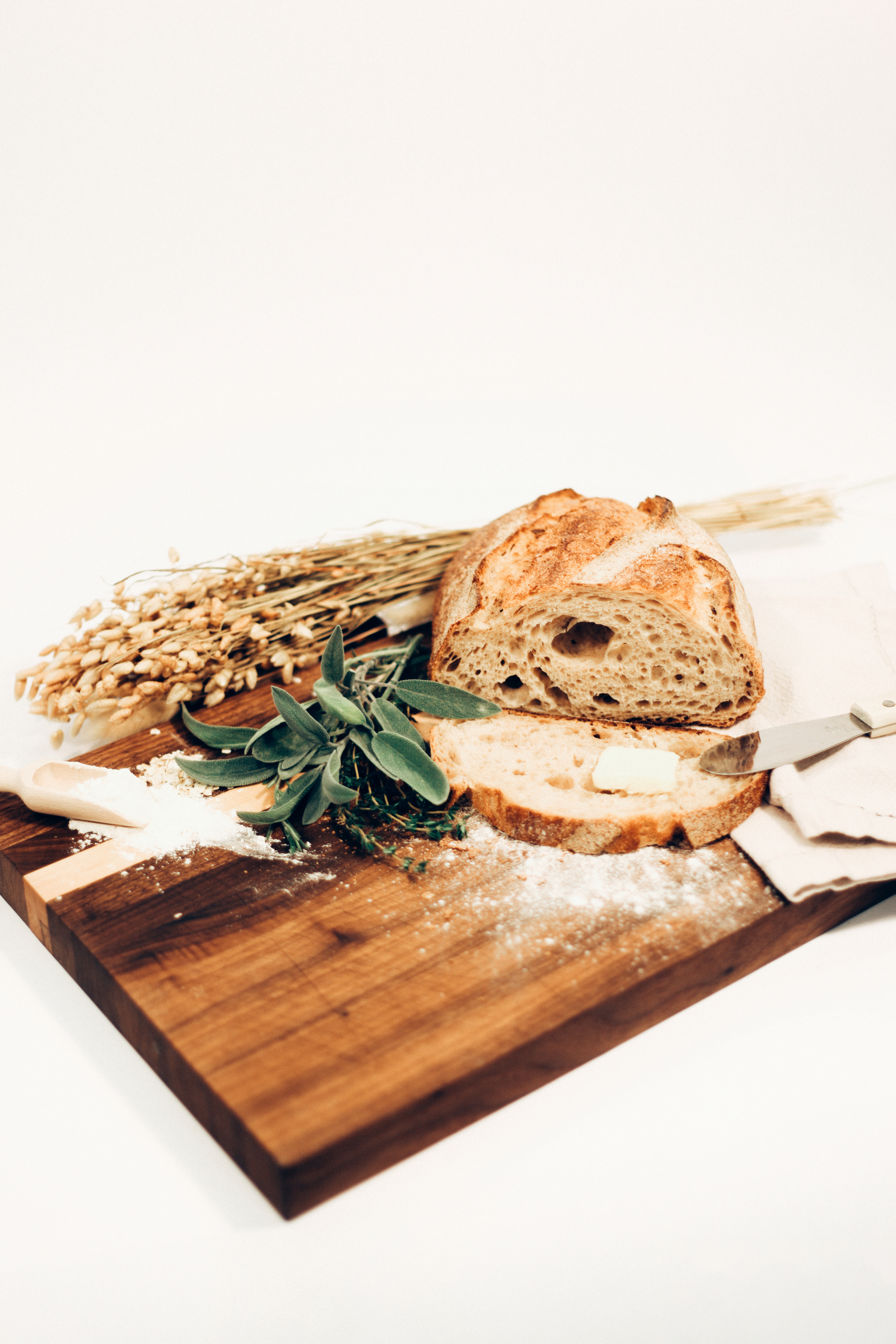
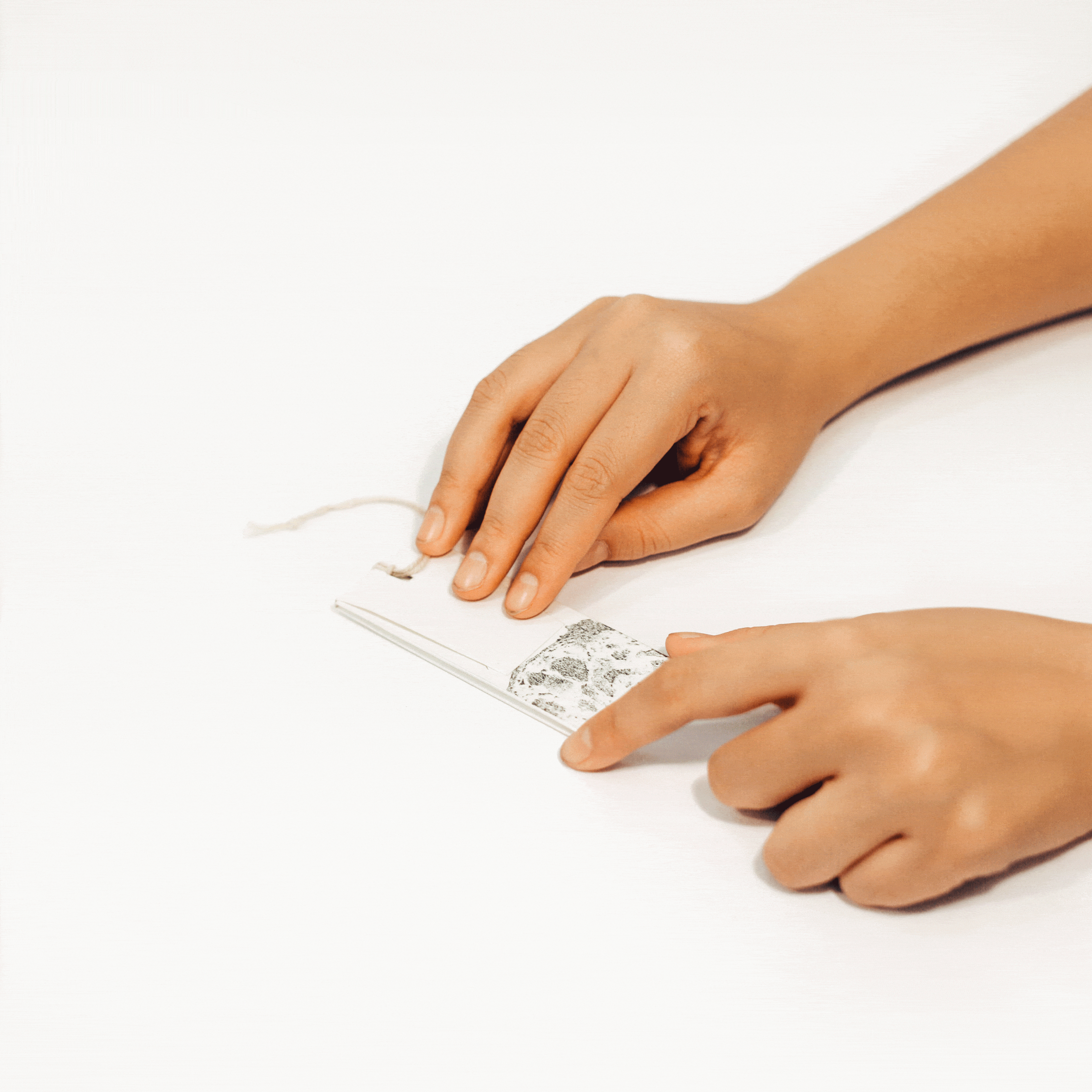
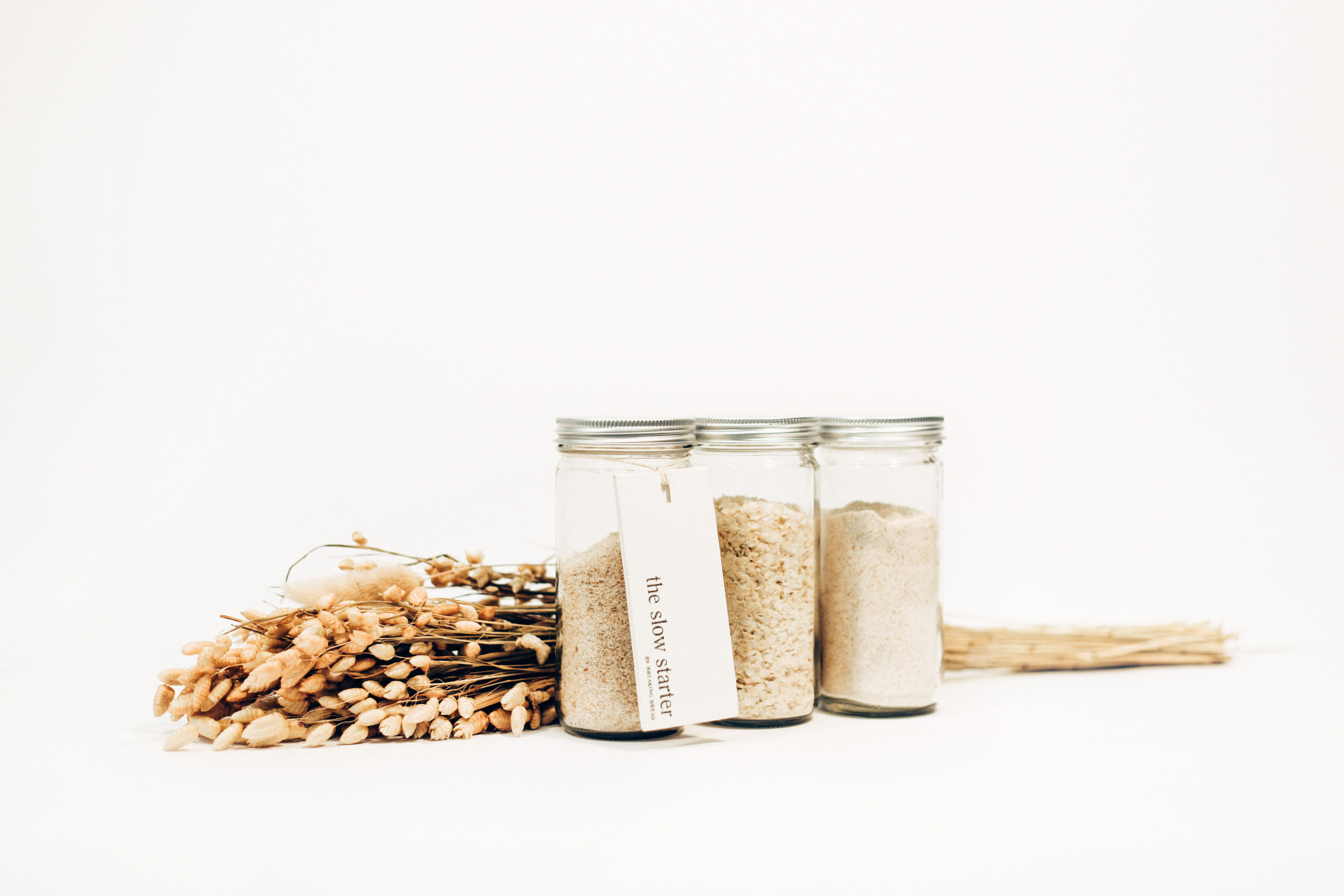

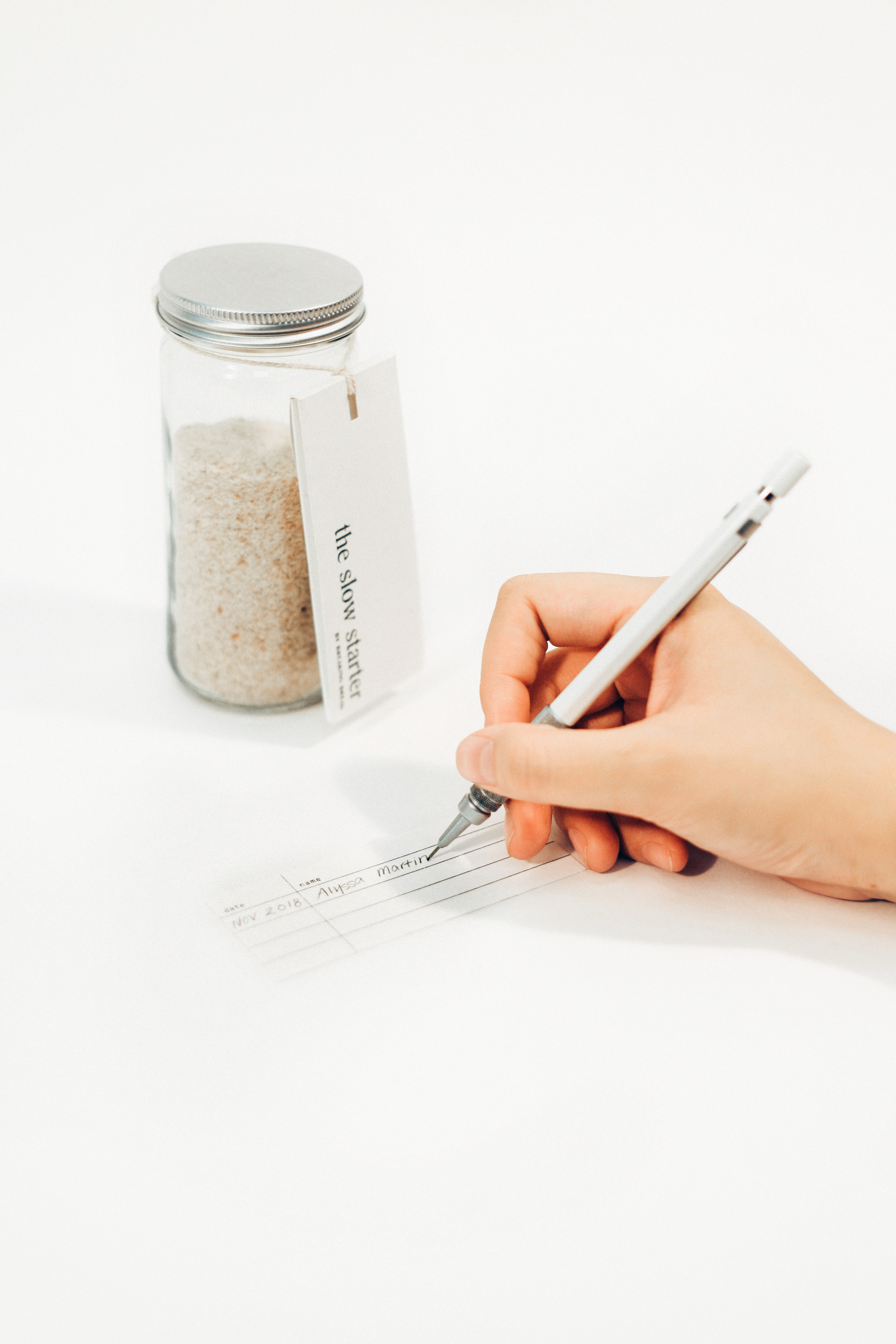
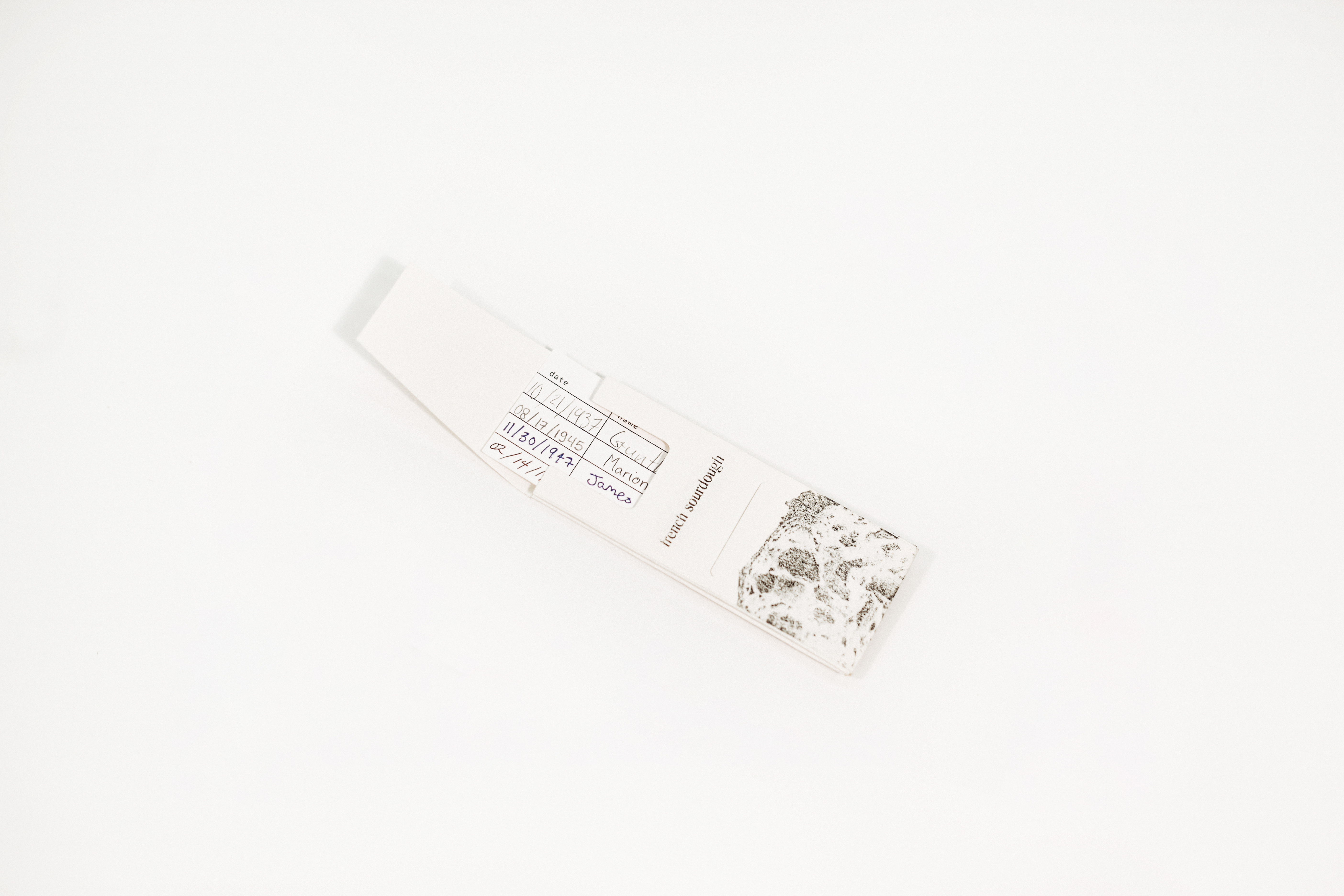
Project Brief:
Shadow Souvenirs from the Anthropocene
Souvenirs represent and important part of our civilization’s material culture. These objects carry complex layers of information from ‘programmed’ messages to personal sentiments that offer a tangible place to put our emotions and make memories permanent. “A souvenir is manufactured to serve as a reminder of a non-ordinary experience, place, or culture. The object works metonymically, as a part for a fragment that evokes larger places and events, It’s partialness, however, is always supplemented by a personal narrative or recollection.”
The brief asks students to look at this familiar and iconic product type in an unfamiliar way, to propose an object that retains the essence of a souvenir, but adds new meaning and relevance as a vehicle for critical engagement and cultural memory. This form of meta-souvenir, as Boym calls it, provokes questions about the very act of remembering, while encouraging us to consider what it means to commemorate.

